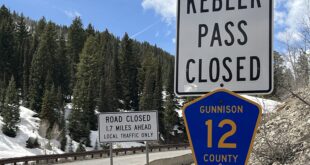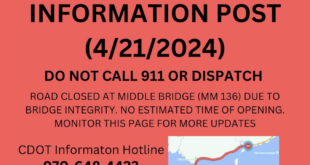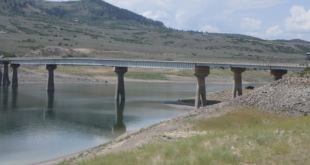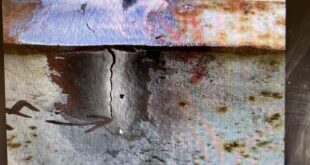Rules would add protections for people, environment
As the Colorado General Assembly considers changes to the rules that govern oil and gas development in the state, the High Country Citizens’ Alliance (HCCA) is confident that the new rules will strike a balance between environmental protection and the push to meet the region’s energy needs.
The rules were developed over nearly two years by the Colorado Oil and Gas Conservation Commission (COGCC), which was created by the legislature to write rules that would maximize the state’s mineral resources while protecting the “public health, safety and welfare,” as well as the environment and wildlife, according to the law establishing the commission.
Last December, the commission finalized the new rules and the legislature is debating the COGCC recommendations during the current legislative session, which ends May 6.
“The process to develop these rules was an intensive public process, with industry and citizens getting involved. I think everybody had an opportunity to weigh in on the rules with plenty of time to testify and offer suggestions,” said HCCA public lands director Dan Morse.
According to Brad Robinson, president of Gunnison Energy Corp., which has permits to operate gas wells on more than 100,000 acres in Gunnison, Delta and Mesa counties, GEC has been active in the discussions regarding the rule changes.
“We’re happy that the process has been open to public and industry concerns. Anyone who had something to say about the rules had a chance to say it,” Robinson says, adding that GEC would wait until the legislature had voted on the rules before commenting on the proposed changes.
Some of the protections being recommended in the new rules would establish protected zones around streams that serve public drinking water supplies; require companies to track and disclose chemicals they use in drilling operations; and manage erosion and reduce water pollution around oil and gas operations during storms and snow run-off seasons, HCCA said in a press release issued Thursday, March 5.
The new rules also propose allowing the state Department of Public Health and Environment and the Division of Wildlife to consult and offer recommendations on oil and gas development. The new rules would also require the owners of land surrounding a proposed drill site to be notified of any public hearings.
By far the most common argument posed by industry loyalists or lawmakers in opposition to the changes is that the new rules will make development of oil and gas resources too expensive to be cost-effective.
They point to the number of energy-rich states surrounding Colorado that are competing for severance tax dollars, paid by companies that extract minerals, to pad their budget.
There is also the possibility, opponents of the rules say, greater regulation would drive drilling operations to states with fewer rules and in an economic environment where drilling operations are already closing in response to the drop in energy prices, an exodus could take jobs and hurt the state’s economy.
But proponents of the rule changes, including State Representative Kathleen Curry, point out that Colorado currently has the lowest taxes on oil and natural gas (6.2 percent) of any Rocky Mountain state. Raising the tax by 50 percent would still only bring Colorado to the level of Wyoming, which has the next lowest rate of neighboring states.
“Colorado is lucky to have a diversified economy—where the energy sector employs less than 1 percent of the state’s work force—partly because Colorado is such an attractive place to visit and live in,” Curry wrote in a February editorial published around the state.
In their statement, HCCA acknowledges the importance of the 23,115 jobs that were sustained by the mineral extraction industry in 2006. But the HCCA statement said, “Colorado’s success in recent years of attracting people and businesses is based on a compelling mix of natural and social amenities that have made it one of the top economic performers in the West.”
The rules can be viewed at http://cogcc.state.co.us. Any related comments from the public should go to Rep. Kathleen Curry, 200 East Colfax Ave, Room 223, Denver, CO 80203.
 The Crested Butte News Serving the Gunnison Valley since 1999
The Crested Butte News Serving the Gunnison Valley since 1999





